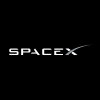
Swap for contract
Blue Origin and Amazon founder Jeff Bezos has offered to finance part of the US National Aeronautics and Space Administration's (NASA) budget deficit in exchange for a contract to develop a lander for the Artemis lunar programme.
The announcement was made in a statement addressed to NASA director Bill Nelson and published on Blue Origin's website on Monday.
"Blue Origin will cover the budget deficit in the Human Landing Systems manned lander development program by waiving payments of up to $2 billion this year and in the next two years," the petition reads.
Bezos is asking NASA to allow his company to participate, at its own expense, in the design and launch of the lunar landing module element. He estimates such costs at more than $1 billion. In return, the billionaire wants a fixed-price contract for Blue Origin services and offers to cover overruns in its execution.
Competition in the industry
Bezos criticised NASA for abandoning its strategy of maintaining competition in the industry.
Without competition, according to the billionaire, NASA would soon face problems such as missed deadlines, changing spacecraft designs and rising costs. Without a competitive environment, plans to land Americans on the moon will cost more, against the national interest of the United States, Bezos warned.
On April 16, NASA announced a $2.9 billion contract to build a landing module with SpaceX, which is owned by Elon Musk, rejecting bids from Blue Origin and Dynetics. The U.S. space agency attributed its decision to limited funds and the fact that Musk's proposal was the most profitable. Blue Origin and Dynetics filed a complaint with the congressional oversight body, and the contract has been suspended pending the outcome of the proceedings.
Artemis programme
In spring 2019, NASA announced the Artemis programme project, which will consist of three phases. The first involves an unmanned flight of the Space Launch System (SLS) rocket-mounted Orion spacecraft around the Moon and its return to Earth. The second phase is a flight around the natural Earth satellite with a crew on board. In the third phase of the mission, NASA expects to land astronauts on the Moon in 2024, and then send them to Mars tentatively in the mid-2030s.











